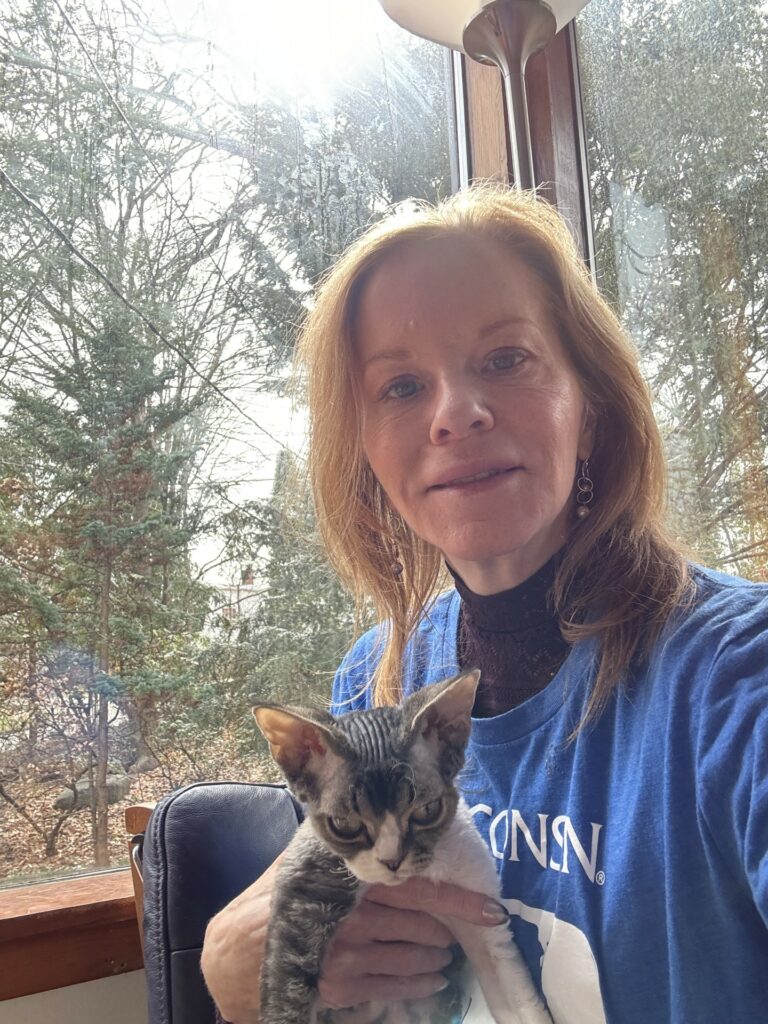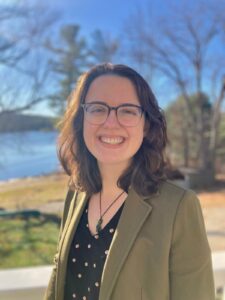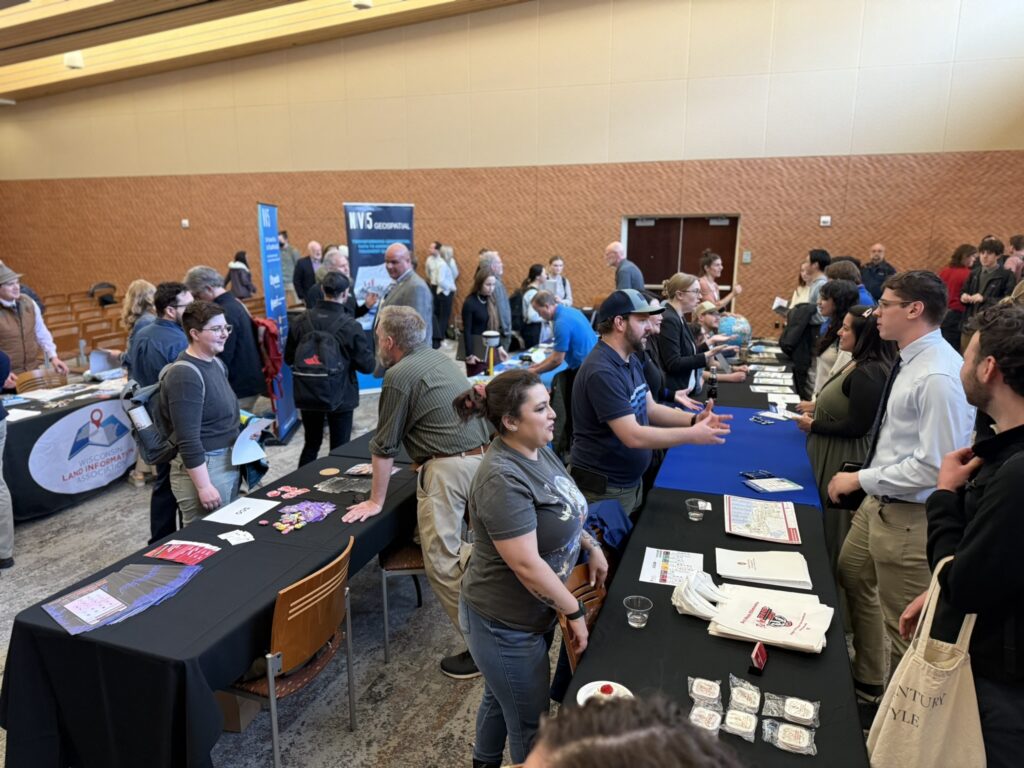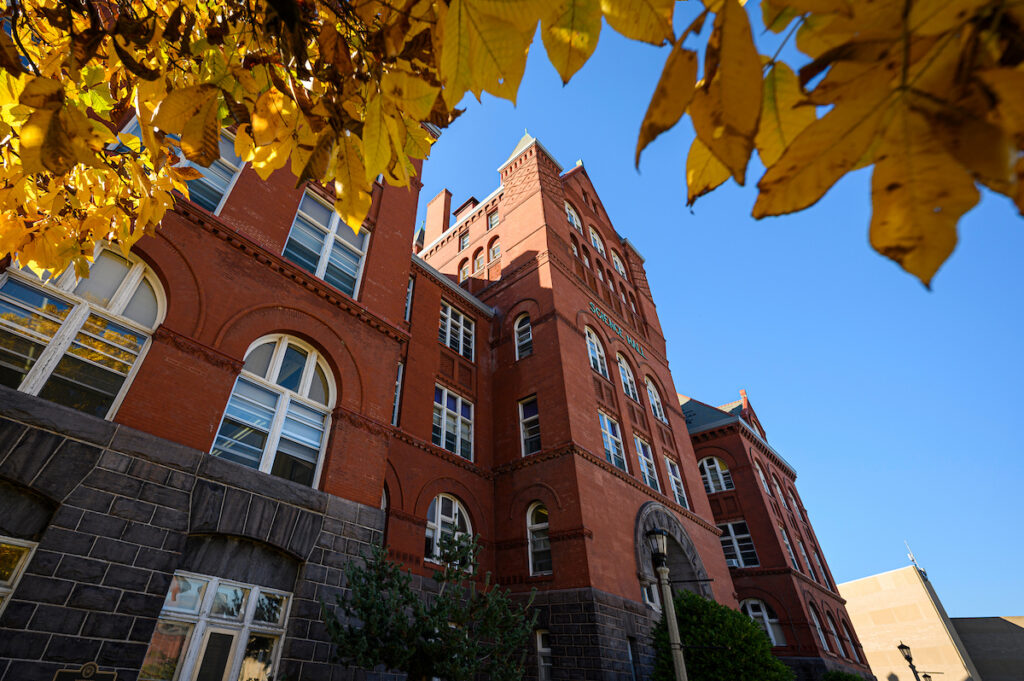
Greetings, everyone. It’s hard to know where to begin! The past few months have presented some of the most significant, coordinated challenges to higher education that I can remember. We’ve watched as campuses across the country have been overtaken by federal agents, had budgets slashed, and had free speech and scientific inquiry silenced. Like other institutions and departments, our department faces enormous challenges in the upcoming year, all of which will have to be faced in an atmosphere of uncertainty at best and constant threat to the very ideals of higher education at worst.
But, despite this often demoralizing, gloomy outlook, we persist.
Every day I come to work in the department, I am buoyed by the incredible research, teaching and outreach that my colleagues engage in. I am continually in awe of their commitments to addressing persistent inequalities and challenges to academic freedom. And I am grateful for the micro-climate of collegiality and support that is Science Hall.

We had the good fortune last year to hire a new faculty member, Dr. Maddy Kroot (PhD, Geography, Clark University, 2025) as part of the campus’s RISE – EARTH initiative (Wisconsin Research, Innovation and Scholarly Excellence Initiative’s area of Environment: Adaptation, Resilience, Technology and Humanity). What that acronym soup means is that Dr. Kroot will have the opportunity to engage in collaborative, interdisciplinary research with other newly arrived scholars across campus. She joins our People-Environment subarea, contributing expertise in the many impacts of energy transitions on communities, including political and social relations. She’s hit the ground running, offering a graduate seminar in her first semester! We look forward to her future contributions to our research and teaching missions. We also welcomed a small, but stellar, group of graduate students to Science Hall this fall; stay tuned for more about them in a future newsletter.
We are excited to roll out the department’s new Geospatial Data Science Certificate, an opportunity for undergraduates to learn to use big data to analyze and model our world with a spatial lens. This certificate builds on the department’s exceptional strengths in Geospatial analysis and is already enrolling eager students. Thanks to all who helped design and achieve approval for the certificate, including Bill Limpisathian, Qunying Huang, Joel Gruley, and Jack Williams!

The State Cartographer’s Office hosted a successful Geospatial Summit last spring. This event welcomes students, staff and faculty at UW–Madison and other Universities of Wisconsin campuses, staff from government agencies at all levels, representatives from the private sector and non-profits, and the general public to campus to share geospatial research and program updates, employment and internship opportunities, and new ideas and initiatives. Speakers included David Hart, who shared his three decades of experience from the Wisconsin Sea Grant. This year’s summit was the biggest yet; congratulations and thanks to SCO, GISPP, Robinson Map Library, and the UW Cartography Lab staff for developing, hosting, and publicizing the event!
Another department signature event, the Cartography Lab Design Challenge, went further afield this year, hosting a week-long mapping workshop in Vienna, Austria. The 2025 Design Challenge built on the Cart Lab’s connections with the International Cartographic Association (the premier international congress for cartographic research and education) and the United Nations.
Back home in Science Hall, visitors across the state (and some from other parts of the country) came to the Robinson Map Library to see the Fantastic Worlds exhibit, which celebrated the work of Karen Wynn Fonstad, a prominent fantasy cartographer who produced The Atlas of Middle-earth, the official geographic guide to the world of J.R.R. Tolkien, in 1981 before moving on to other fantasy worlds, including Anne McCaffrey’s Pern and the popular Dungeons & Dragons setting Dragonlance. Visitors added over 300 entries to the event guest book. Karen’s son (and department alum) Mark Fonstad worked with several members of the department (Jaime Martindale, Map and GIS Librarian; Janelle Greene, Communications Specialist; Alicia Cowart, UW Cartography Lab Creative Director; Professor Robert Roth; Assistant Professor Bill Limpisathian) to create the exhibit and several events around it.

‘Back home in Science Hall’—soon, I won’t be able to say that, at least for a few years! We received word in July that Science Hall will be fully renovated, starting in 2027! This is a terrific opportunity to update the building so that it can be a more accessible, comfortable place to work. We will move out of Science Hall in summer 2026, with a return date sometime in 2029. So many of us have fond memories of the building and appreciate its historical (sometimes downright quirky) character. We look forward to sharing our stories—and hearing yours—in the upcoming year. We may be displaced for a while, but I have faith that we can keep the micro-climate of collegiality and support that so many of us value alive in our temporary spaces!
Finally, I want to extend my sincere appreciation to all our alumni, friends and donors. Unfortunately, we need your support more than ever! I recognize and value the commitment it takes to contribute, especially as so many of you also face challenges this year. You are an important part of our community.



